Center News
Warriner discusses diet and medication options for managing diabetes in UAB MedCast podcast
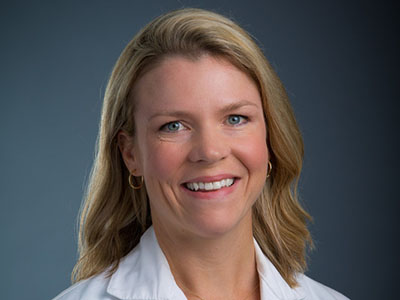 UAB Comprehensive Diabetes Center Member Amy Warriner, M.D., recently sat down with UAB MedCast podcast to talk about nutrition for diabetes.
UAB Comprehensive Diabetes Center Member Amy Warriner, M.D., recently sat down with UAB MedCast podcast to talk about nutrition for diabetes.
Garvey further explores the effects of gestational diabetes in three new publications
 Gestational diabetes–a type of diabetes that develops during pregnancy–is on the rise. From 2000 to 2010, the percentage of pregnant women with gestational diabetes increased 56 percent, according to the CDC.
Gestational diabetes–a type of diabetes that develops during pregnancy–is on the rise. From 2000 to 2010, the percentage of pregnant women with gestational diabetes increased 56 percent, according to the CDC.
Local construction executive shares why he gives to diabetes research
 Brian Barr, a former executive in the construction industry, is a recognized and prominent businessman in the Birmingham, AL community and beyond. He recently retired as a regional president at Brasfield and Gorrie.
Brian Barr, a former executive in the construction industry, is a recognized and prominent businessman in the Birmingham, AL community and beyond. He recently retired as a regional president at Brasfield and Gorrie.
Grimes named chair elect for the UAB Council of Center Administrators
 Director of Diabetes Research Administration at the UAB Comprehensive Diabetes Center (UCDC) Tiffany Grimes, BSN, RN, has been named chair elect for the UAB Council of Center Administrators (CoCA).
Director of Diabetes Research Administration at the UAB Comprehensive Diabetes Center (UCDC) Tiffany Grimes, BSN, RN, has been named chair elect for the UAB Council of Center Administrators (CoCA).
Diabetes researchers: dates you need to know for 2023

As we begin a new year, the UAB Comprehensive Diabetes Center has collated key conference and grant submission dates for 2023.
Read moreAlmutairi secures travel award for Southeastern Regional Lipid Conference
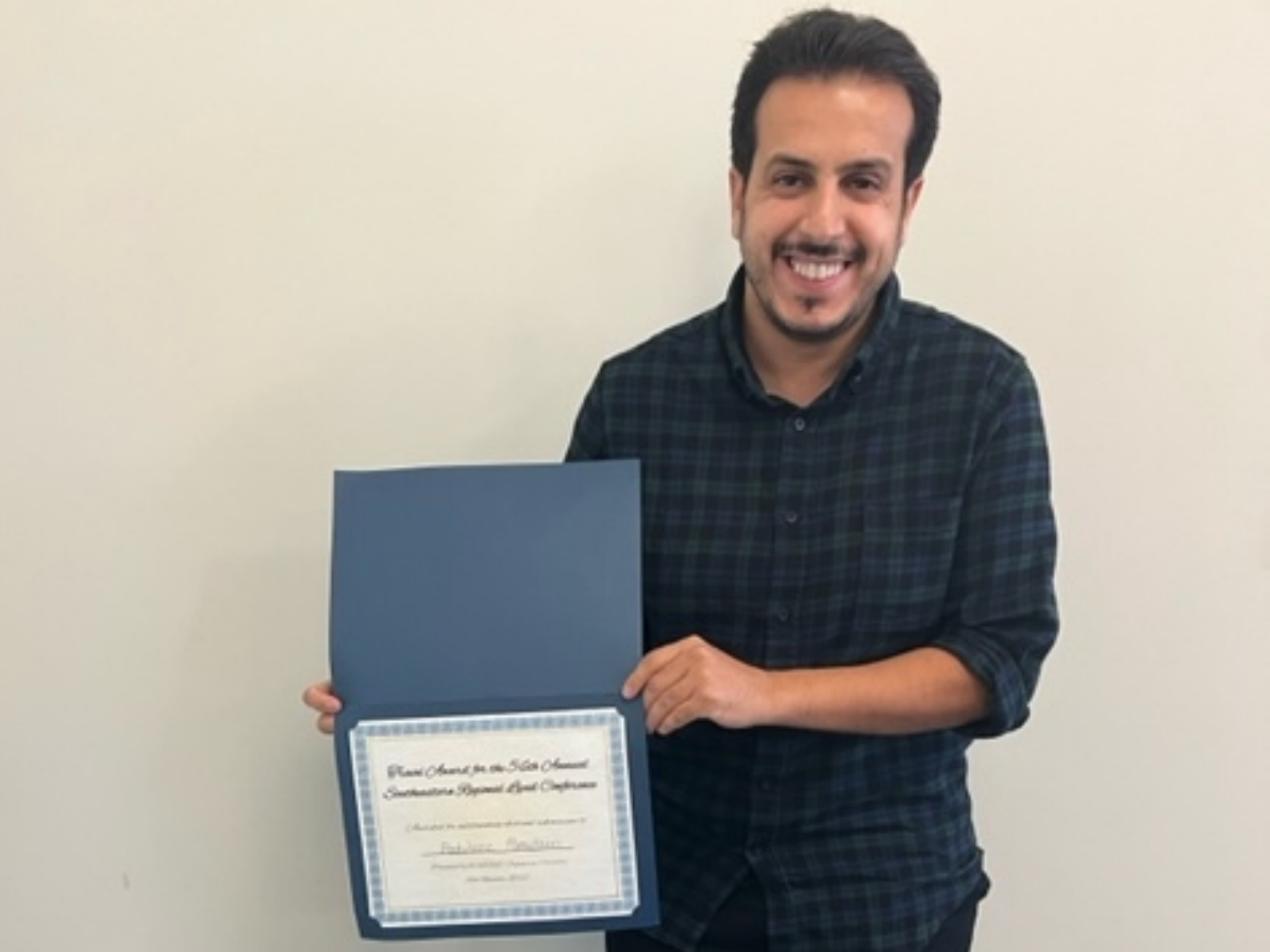 UAB Comprehensive Diabetes Center Graduate Research Assistant and Ph.D. Candidate Abdulaziz Almutairi was awarded a travel award for the 56th Southeastern Regional Lipid Conference.
Read more
UAB Comprehensive Diabetes Center Graduate Research Assistant and Ph.D. Candidate Abdulaziz Almutairi was awarded a travel award for the 56th Southeastern Regional Lipid Conference.
Read more
Ovalle discusses treating Type 2 diabetes in the Diabetes Belt with UAB MedCast podcast
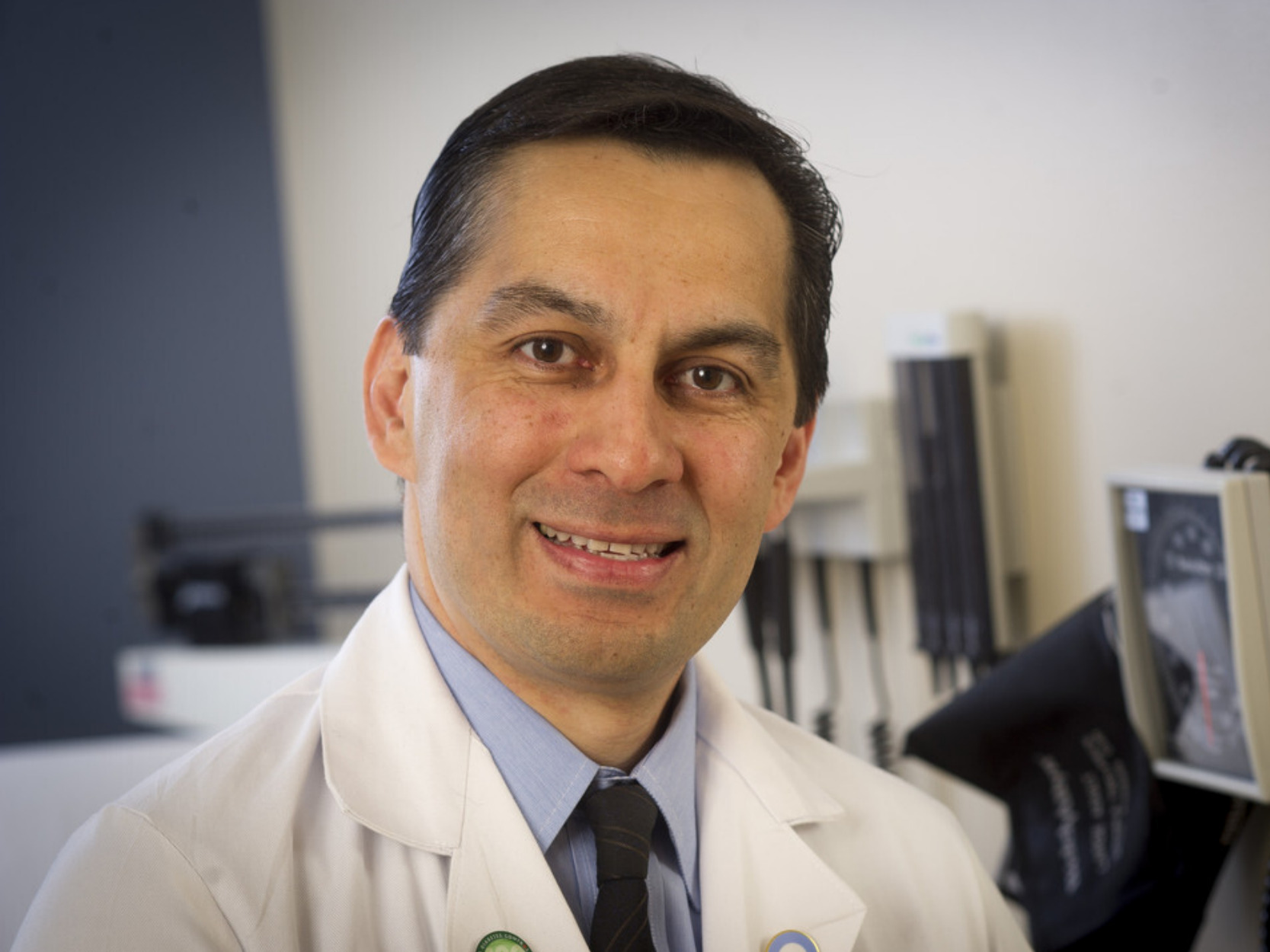 UAB Comprehensive Diabetes Center Associate Director Fernando Ovalle, M.D., recently sat down with UAB MedCast podcast to talk about treating Type 2 diabetes in the CDC-coined "Diabetes Belt."
UAB Comprehensive Diabetes Center Associate Director Fernando Ovalle, M.D., recently sat down with UAB MedCast podcast to talk about treating Type 2 diabetes in the CDC-coined "Diabetes Belt."
Shalev receives EntrepreHER award for diabetes startup
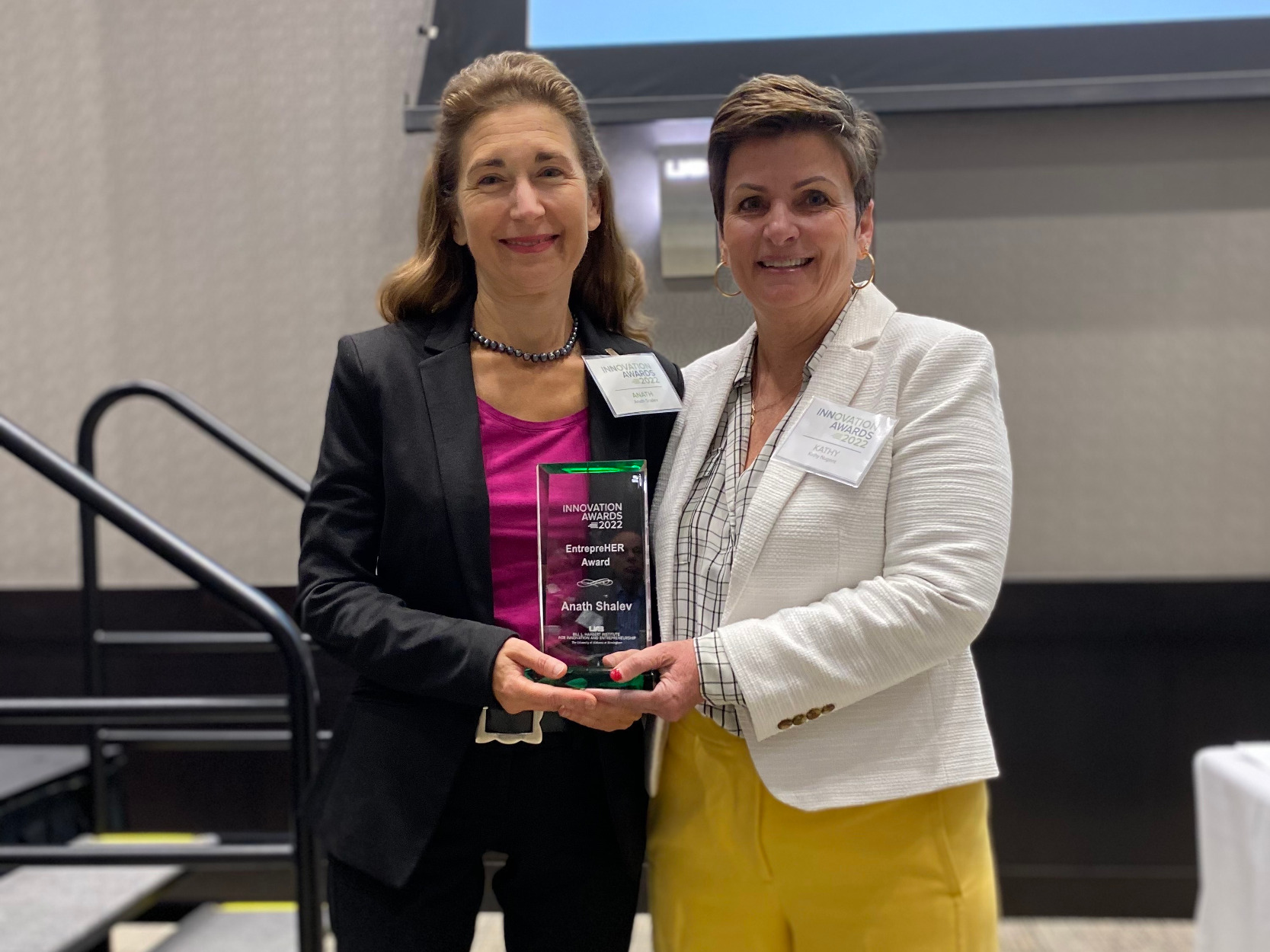 Photo credit: Amy Jones
Photo credit: Amy Jones
The Bill L. Harbert Institute for Innovation and Entrepreneurship recognized UAB Comprehensive Diabetes Center (UCDC) Director Anath Shalev, M.D., through the EntrepreHER award for Shalev’s leadership in founding a new diabetes startup headquartered in Birmingham, AL.
Read moreVaughan, Warriner recognized by the UAB Department of Medicine
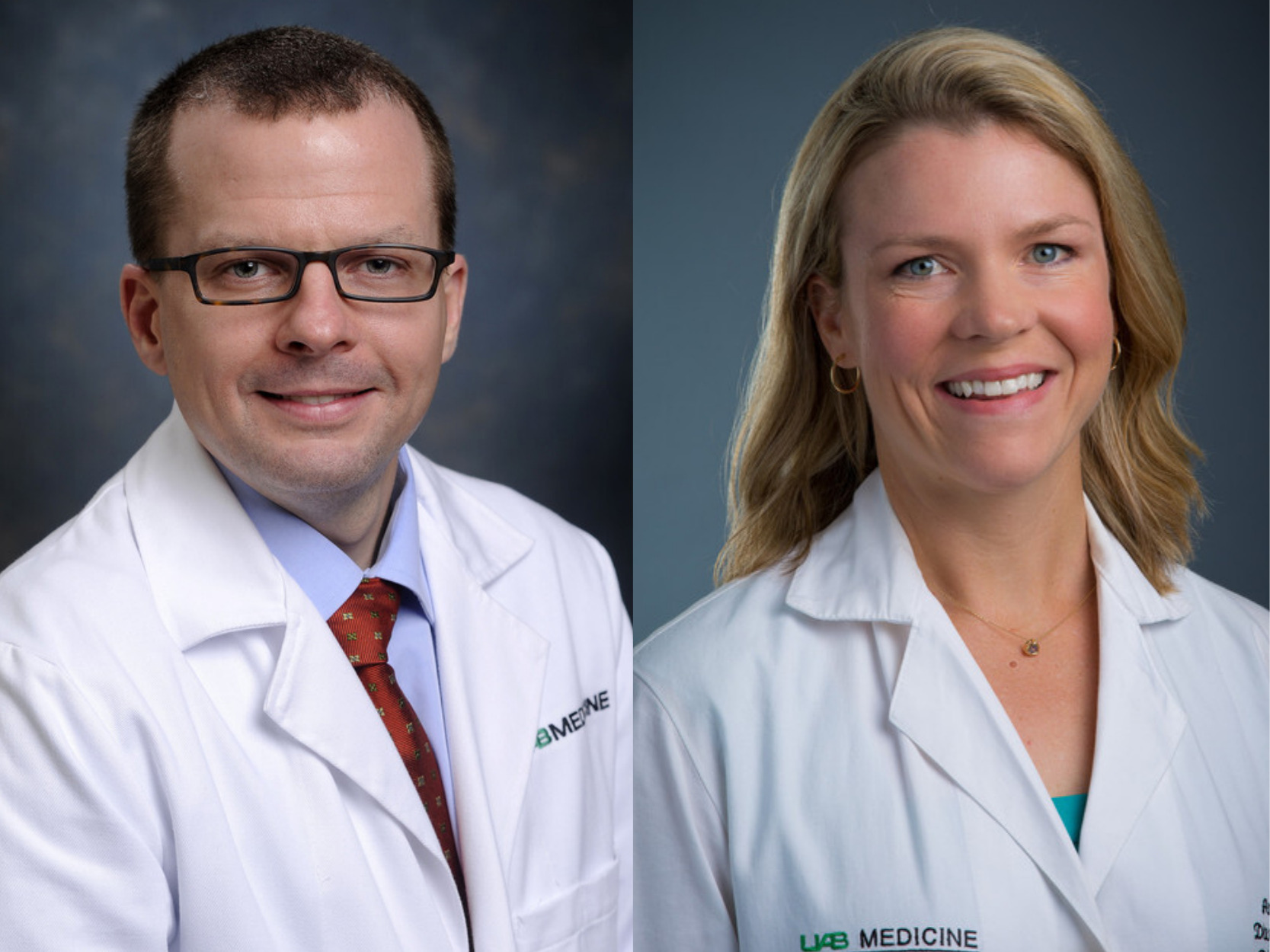 Drs. T. Brooks Vaughan (left) and Amy Warriner (right)
Drs. T. Brooks Vaughan (left) and Amy Warriner (right)
Each year, the UAB Department of Medicine announces several awards for faculty across many divisions, from research and clinical awards of excellence to unsung heroes to teaching awards.
Read moreUCDC recognizes LaRussa, Silverstein, and MPT for their philanthropic dedication
 Pictured: Silverstein family and Dr. Anath Shalev (third from right)The UAB Comprehensive Diabetes Center recently recognized Benny M. LaRussa, Jr., and David L. Silverstein as 2022 Volunteers in Philanthropy at the Association of Fundraising Professionals Alabama Chapter National Philanthropy Day on November 10, 2022.
Pictured: Silverstein family and Dr. Anath Shalev (third from right)The UAB Comprehensive Diabetes Center recently recognized Benny M. LaRussa, Jr., and David L. Silverstein as 2022 Volunteers in Philanthropy at the Association of Fundraising Professionals Alabama Chapter National Philanthropy Day on November 10, 2022.
The National Philanthropy Day Volunteer in Philanthropy (VIP) Award honors kind and generous individuals who have been instrumental in building and supporting the community in Birmingham, AL.
LaRussa and Silverstein have not only pledged their financial support to the UCDC, but they are central to its ability to continue to grow here at UAB. Their dedication to the center directly impacts the center as well as those with diabetes. The UCDC expresses its gratitude to LaRussa, Silverstein, and their families for their continued efforts in supporting the center.
Medical Properties Trust (MPT) received the Outstanding Corporate Citizen Award at AFP Alabama Chapter National Philanthropy Day. MPT has been invaluable to the growth and research capabilities of the center, most recently pledging a $5 million gift to the center.

About Benny M. LaRussa, Jr.
Benny M. LaRussa, Jr., graduated from Auburn University in 1982 with a bachelor’s degree in finance and received his master’s in public and private management from Birmingham-Southern College in 1986. He is founder and chief executive officer of Sterling Capital Management, a multi-asset holding company headquartered in Birmingham, Alabama. Sterling Capital Management owns and operates three platform companies: Fenwick Brands, a consumer-packaged goods private equity firm; American Pipe and Supply, a wholesale distributor of pipe, valves, and fittings; and StoneRiver Company, a real estate development and property management company.
He serves on the boards of Security Engineers Inc., Synovus Bank-Birmingham, Quarterbacking Children’s Health Foundation, and the UAB Comprehensive Diabetes Center. He is currently the Board Chair of the Joseph S. Bruno Charitable Foundation and Sterling Capital Management Company’s holdings: American Pipe and Supply Company, Fenwick Brands, and StoneRiver Company.
Benny is married to Lynn F LaRussa. They have two daughters, Megan L Chenoweth (Barnett) and Chelsey L Heslop (Kyle), and three grandchildren, Finn Heslop, James Chenoweth, and Poppy Heslop.
About David L. Silverstein
David L. Silverstein is the founder of The FiveStone Group, a newly established commercial real estate firm based in Birmingham, Alabama specializing in the development of mixed-use projects.
Prior to forming The FiveStone Group, David was an operating principal at Bayer Properties, LLC, where he directed development efforts and managed Bayer’s relationship with governmental entities nationwide, including public-private partnerships, securing TIF and PIF financing, new market historic tax credits, and tax share back agreements. David was instrumental in securing various entitlements and ordinance requirements or variances in such areas as zoning, landscaping, traffic and parking. He retains an ownership interest in the assets including The Summit in Birmingham, Alabama, a 1 million square foot regional shopping destination; The Summit at Fritz Farm, a $156 million mixed-use development in Lexington, Kentucky; and The Pizitz, a historic property in downtown Birmingham, Alabama. Before joining Bayer in 1994, he was a Partner in the law firm of Berkowitz, Lefkovits, Isom, and Kushner.
David takes an active role in the community and has served as president of the Alabama Chapters of the American Heart Association and the Juvenile Diabetes Research Foundation. He is President of the Board of Directors for the Alabama Holocaust Education Center and a member of the Board of Directors for Ascension Alabama and Leadership Alabama. David is also a member of the Norton Board of Advisors for Birmingham Southern College; The University of Alabama Honors College Board of Visitors; the UAB Comprehensive Diabetes Center Advisory Board; the First Horizon Bank Birmingham Advisory Board; and co-chairs Leadership Alabama’s Birmingham Regional Council.
David is married to the former Susan Tilson and they have five children and eleven grandchildren. He attended Birmingham University School (B.U.S. now Altamont, 1974), Vanderbilt University (1978), and Cumberland School of Law (1981).
Medical Properties Trust (MPT) received the Outstanding Corporate Citizen Award at the 2022 AFP Alabama Chapter National Philanthropy Day. MPT has been invaluable to the growth and research capabilities of the center, most recently pledging a $5 million gift to the center in January 2021.
Medical Properties Trust (MPT) is a global leading provider of real estate capital to hospitals, and the second-largest non-governmental owner of hospital beds in the United States. It is unique among REITs due to our exclusive focus on investing in hospital real estate. Its hospitals and our tenant operators provided high quality care to millions of patients in the U.S. and abroad in 2020. Domestically, this included more than 490,000 admissions, two million ER visits and 300,000 surgeries.
MPT works to improve healthcare on a global scale and in the vibrant city that serves as the company’s home base—Birmingham, Alabama. MPT consistently supports nonprofit organizations in ways that: contribute to the health and well-being of its community—its people and the city itself; help research hospitals and medical organizations make discoveries that can impact the world. MPT notes, “We are committed to making a positive difference in the communities in which we operate, and we run, and encourage our tenant operators to run, all aspects of operations with environmental and social sustainability in mind.”
UAB Comprehensive Diabetes Center 2022 Research Roundup
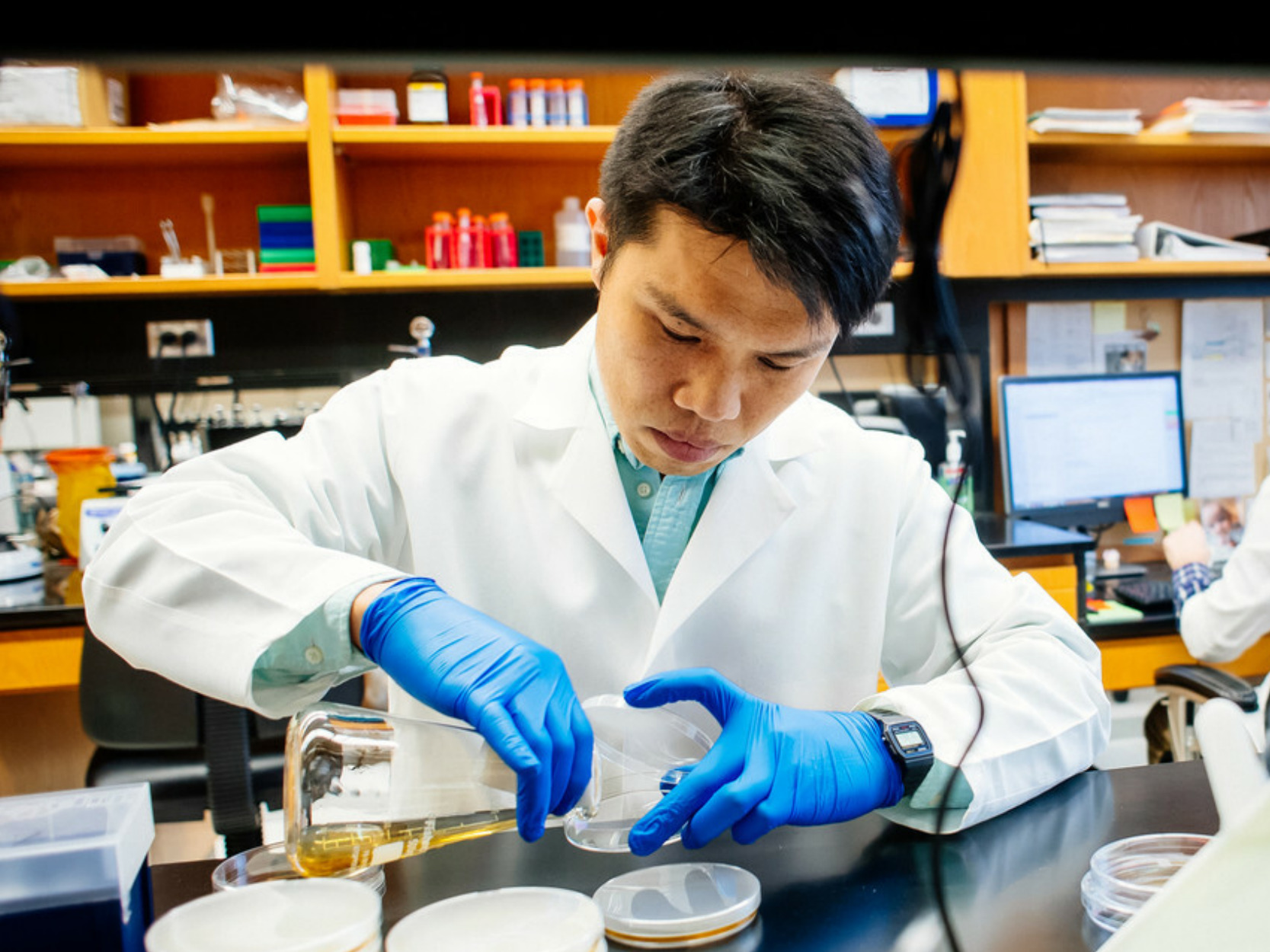
The UAB Comprehensive Diabetes Center is comprised of faculty members conducting basic, translational, and clinical research related to diabetes and its complications.
Current areas of research include autoimmune type 1 diabetes, type 2 diabetes, diabetes complications, beta cell biology, oxidative stress, signaling and metabolism as well as diabetes risk factors, epidemiology, intervention studies, outcomes research, and drug discovery.
With funding from national institutes, foundations, and donors, we perform cutting-edge diabetes research, provide comprehensive education and training, and uncover breakthroughs in treatment for those affected by diabetes in our community and beyond. Below is a list of examples of recent key peer-reviewed publications from the UCDC Young Diabetes Principle Investigator group and UCDC director and associate directors.
- LDB1-mediated transcriptional complexes are sensitive to islet stress.
Liu Y, Kepple JD, Shalev A, S Hunter C.Islets. 2022 Dec 31;14(1):58-68. doi: 10.1080/19382014.2021.2016028.PMID: 34968409
- Heterogeneity of Diabetes: β-Cells, Phenotypes, and Precision Medicine: Proceedings of an International Symposium of the Canadian Institutes of Health Research's Institute of Nutrition, Metabolism and Diabetes and the U.S. National Institutes of Health's National Institute of Diabetes and Digestive and Kidney Diseases.
Cefalu WT, Andersen DK, Arreaza-Rubín G, Pin CL, Sato S, Verchere CB, Woo M, Rosenblum ND; Symposium planning committee, moderators, and speakers:, Rosenblum N, Cefalu W, Andersen DK, Arreaza-Rubín G, Dhara C, James SP, Makarchuk MJ, Pin CL, Sato S, Verchere B, Woo M, Powers A, Estall J, Hoesli C, Millman J, Linnemann A, Johnson J, Pin CL, Hawkins M, Woo M, Gloyn A, Cefalu W, Rosenblum N, Huising MO, Benninger RKP, Almaça J, Hull-Meichle RL, MacDonald P, Lynn F, Melero-Martin J, Yoshihara E, Stabler C, Sander M, Evans-Molina C, Engin F, Thompson P, Shalev A, Redondo MJ, Nadeau K, Bellin M, Udler MS, Dennis J, Dash S, Zhou W, Snyder M, Booth G, Butte A, Florez J.Diabetes Care. 2022 Jan 1;45(1):3-22. doi: 10.2337/dci21-0051.
- Effect of Weekly Subcutaneous Semaglutide vs Daily Liraglutide on Body Weight in Adults With Overweight or Obesity Without Diabetes: The STEP 8 Randomized Clinical Trial.
Rubino DM, Greenway FL, Khalid U, O'Neil PM, Rosenstock J, Sørrig R, Wadden TA, Wizert A, Garvey WT; STEP 8 Investigators.JAMA. 2022 Jan 11;327(2):138-150. doi: 10.1001/jama.2021.23619.PMID: 35015037
- Mother-child cardiometabolic health 4-10 years after pregnancy complicated by obesity with and without gestational diabetes.
Martin SL, Zhang L, Callahan ML, Bahorski J, Lewis CE, Hidalgo BA, Durant N, Harper LM, Battarbee AN, Habegger K, Moore BA, Everett A, Aslibekyan S, Sertie R, Yi N, Garvey WT, Chandler-Laney P.Obes Sci Pract. 2022 Feb 16;8(5):627-640. doi: 10.1002/osp4.599. eCollection 2022 Oct.PMID: 36238222
- Islet transplantation into brown adipose tissue can delay immune rejection.
Kepple JD, Barra JM, Young ME, Hunter CS, Tse HM.JCI Insight. 2022 Feb 22;7(4):e152800. doi: 10.1172/jci.insight.152800.PMID: 35015736
- Is Obesity or Adiposity-Based Chronic Disease Curable: The Set Point Theory, the Environment, and Second-Generation Medications.
Garvey WT.Endocr Pract. 2022 Feb;28(2):214-222. doi: 10.1016/j.eprac.2021.11.082. Epub 2021 Nov 22.PMID: 34823000
- Exploratory study reveals far reaching systemic and cellular effects of verapamil treatment in subjects with type 1 diabetes.
Xu G, Grimes TD, Grayson TB, Chen J, Thielen LA, Tse HM, Li P, Kanke M, Lin TT, Schepmoes AA, Swensen AC, Petyuk VA, Ovalle F, Sethupathy P, Qian WJ, Shalev A.Nat Commun. 2022 Mar 3;13(1):1159. doi: 10.1038/s41467-022-28826-3.PMID: 35241690
- New Horizons. A New Paradigm for Treating to Target with Second-Generation Obesity Medications.
Garvey WT.J Clin Endocrinol Metab. 2022 Mar 24;107(4):e1339-e1347. doi: 10.1210/clinem/dgab848.PMID: 34865050
- Subcutaneous Administration of a Nitric Oxide-Releasing Nanomatrix Gel Ameliorates Obesity and Insulin Resistance in High-Fat Diet-Induced Obese Mice.
Ren G, Hwang PTJ, Millican R, Shin J, Brott BC, van Groen T, Powell CM, Bhatnagar S, Young ME, Jun HW, Kim JA.ACS Appl Mater Interfaces. 2022 May 4;14(17):19104-19115. doi: 10.1021/acsami.1c24113. Epub 2022 Apr 25.PMID: 35467831
- Deletion of Gdf15 Reduces ER Stress-induced Beta-cell Apoptosis and Diabetes.
Xu G, Chen J, Jo S, Grayson TB, Ramanadham S, Koizumi A, Germain-Lee EL, Lee SJ, Shalev A. 2022 May 1;163(5):bqac030. doi: 10.1210/endocr/bqac030.PMID: 35290443
- FGF21-FGFR4 signaling in cardiac myocytes promotes concentric cardiac hypertrophy in mouse models of diabetes.
Yanucil C, Kentrup D, Li X, Grabner A, Schramm K, Martinez EC, Li J, Campos I, Czaya B, Heitman K, Westbrook D, Wende AR, Sloan A, Roche JM, Fornoni A, Kapiloff MS, Faul C.Sci Rep. 2022 May 5;12(1):7326. doi: 10.1038/s41598-022-11033-x.PMID: 35513431
- Associations between cardiometabolic disease severity, social determinants of health (SDoH), and poor COVID-19 outcomes.
Howell CR, Zhang L, Yi N, Mehta T, Cherrington AL, Garvey WT.Obesity (Silver Spring). 2022 Jul;30(7):1483-1494. doi: 10.1002/oby.23440. Epub 2022 May 25.PMID: 35352489
- American Association of Clinical Endocrinology Clinical Practice Guideline for the Diagnosis and Management of Nonalcoholic Fatty Liver Disease in Primary Care and Endocrinology Clinical Settings: Co-Sponsored by the American Association for the Study of Liver Diseases (AASLD).
Cusi K, Isaacs S, Barb D, Basu R, Caprio S, Garvey WT, Kashyap S, Mechanick JI, Mouzaki M, Nadolsky K, Rinella ME, Vos MB, Younossi Z.Endocr Pract. 2022 May;28(5):528-562. doi: 10.1016/j.eprac.2022.03.010.PMID: 35569886
- Changes in Type 2 Diabetes Trends in Children and Adolescents During the COVID-19 Pandemic.
Schmitt JA, Ashraf AP, Becker DJ, Sen B.J Clin Endocrinol Metab. 2022 Jun 16;107(7):e2777-e2782. doi: 10.1210/clinem/dgac209.PMID: 35377436
- Diagnostic Test Accuracy of Urine C-peptide Creatinine Ratio for the Correct Identification of the Type of Diabetes: A Systematic Review.
Pappachan JM, Sunil B, Fernandez CJ, Lahart IM, Ashraf AP.touchREV Endocrinol. 2022 Jun;18(1):2-9. doi: 10.17925/EE.2022.18.1.2. Epub 2022 May 23.PMID: 35949364
- Guidelines on models of diabetic heart disease.
Heather LC, Hafstad AD, Halade GV, Harmancey R, Mellor KM, Mishra PK, Mulvihill EE, Nabben M, Nakamura M, Rider OJ, Ruiz M, Wende AR, Ussher JR.Am J Physiol Heart Circ Physiol. 2022 Jul 1;323(1):H176-H200. doi: 10.1152/ajpheart.00058.2022. Epub 2022 Jun 3.PMID: 35657616
- The Ldb1 transcriptional co-regulator is required for establishment and maintenance of the pancreatic endocrine lineage.
Toren E, Liu Y, Bethea M, Wade A, Hunter CS.FASEB J. 2022 Aug;36(8):e22460. doi: 10.1096/fj.202200410R.PMID: 35881062
- Examining the evidence for weight management in individuals with type 2 diabetes.
Garvey WT, Umpierrez GE, Dunn JP, Kwan AYM, Varnado OJ, Konig M, Levine JA.Diabetes Obes Metab. 2022 Aug;24(8):1411-1422. doi: 10.1111/dom.14764. PMID: 35545861
- Cathepsin D Drives the Formation of Hybrid Insulin Peptides Relevant to the Pathogenesis of Type 1 Diabetes.
Crawford SA, Wiles TA, Wenzlau JM, Powell RL, Barbour G, Dang M, Groegler J, Barra JM, Burnette KS, Hohenstein AC, Baker RL, Tse HM, Haskins K, Delong T.Diabetes. 2022 Aug 30:db220303. doi: 10.2337/db22-0303.PMID: 36041196
- Extracellular vesicles in β cell biology: Role of lipids in vesicle biogenesis, cargo, and intercellular signaling.
Aguirre RS, Kulkarni A, Becker MW, Lei X, Sarkar S, Ramanadham S, Phelps EA, Nakayasu ES, Sims EK, Mirmira RG.Mol Metab. 2022 Sep;63:101545. doi: 10.1016/j.molmet.2022.101545. Epub 2022 Jul 8.PMID: 35817393
- Carbonyl Posttranslational Modification Associated With Early-Onset Type 1 Diabetes Autoimmunity.
Yang ML, Connolly SE, Gee RJ, Lam TT, Kanyo J, Peng J, Guyer P, Syed F, Tse HM, Clarke SG, Clarke CF, James EA, Speake C, Evans-Molina C, Arvan P, Herold KC, Wen L, Mamula MJ.Diabetes. 2022 Sep 1;71(9):1979-1993. doi: 10.2337/db21-0989.PMID: 35730902
- Cross Talk Between Insulin and Glucagon Receptor Signaling in the Hepatocyte.
Habegger KM.Diabetes. 2022 Sep 1;71(9):1842-1851. doi: 10.2337/dbi22-0002.PMID: 35657690
- Pharmacologic Weight Management in the Era of Adolescent Obesity.
Raman V, Gupta A, Ashraf AP, Breidbart E, Gourgari E, Kamboj M, Kohn B, Krishnan S, Lahoti A, Matlock K, Mehta S, Mistry S, Miller R, Page L, Reynolds D, Han JC.J Clin Endocrinol Metab. 2022 Sep 28;107(10):2716-2728. doi: 10.1210/clinem/dgac418.PMID: 35932277
- Semaglutide improves cardiometabolic risk factors in adults with overweight or obesity: STEP 1 and 4 exploratory analyses.
Kosiborod MN, Bhatta M, Davies M, Deanfield JE, Garvey WT, Khalid U, Kushner R, Rubino DM, Zeuthen N, Verma S.Diabetes Obes Metab. 2022 Oct 6. doi: 10.1111/dom.14890. Online ahead of print.PMID: 36200477
- Hepatic mTORC2 Signaling Facilitates Acute Glucagon Receptor Enhancement of Insulin-Stimulated Glucose Homeostasis in Mice.
Kim T, Nason S, Antipenko J, Finan B, Shalev A, DiMarchi R, Habegger KM.Diabetes. 2022 Oct 1;71(10):2123-2135. doi: 10.2337/db21-1018.PMID: 35877180
- Alpha Cell Thioredoxin-interacting Protein Deletion Improves Diabetes-associated Hyperglycemia and Hyperglucagonemia.
Lu B, Chen J, Xu G, Grayson TB, Jing G, Jo S, Shalev A.Endocrinology. 2022 Oct 11;163(11):bqac133. doi: 10.1210/endocr/bqac133.PMID: 35957590
- American Association of Clinical Endocrinology Clinical Practice Guideline: Developing a Diabetes Mellitus Comprehensive Care Plan-2022 Update.
Blonde L, Umpierrez GE, Reddy SS, McGill JB, Berga SL, Bush M, Chandrasekaran S, DeFronzo RA, Einhorn D, Galindo RJ, Gardner TW, Garg R, Garvey WT, Hirsch IB, Hurley DL, Izuora K, Kosiborod M, Olson D, Patel SB, Pop-Busui R, Sadhu AR, Samson SL, Stec C, Tamborlane WV Jr, Tuttle KR, Twining C, Vella A, Vellanki P, Weber SL.Endocr Pract. 2022 Oct;28(10):923-1049. doi: 10.1016/j.eprac.2022.08.002. Epub 2022 Aug 11.PMID: 35963508
- Economic outcomes of antiobesity medication use among adults in the United States: A retrospective cohort study.
Watkins S, Toliver JC, Kim N, Whitmire S, Garvey WT.J Manag Care Spec Pharm. 2022 Oct;28(10):1066-1079. doi: 10.18553/jmcp.2022.22116. Epub 2022 Jul 20.PMID: 35856489
- Two-year effects of semaglutide in adults with overweight or obesity: the STEP 5 trial.
Garvey WT, Batterham RL, Bhatta M, Buscemi S, Christensen LN, Frias JP, Jódar E, Kandler K, Rigas G, Wadden TA, isletWharton S; STEP 5 Study Group.Nat Med. 2022 Oct;28(10):2083-2091. doi: 10.1038/s41591-022-02026-4. Epub 2022 Oct 10.PMID: 36216945
- Extracellular vesicles in β cell biology: Role of lipids in vesicle biogenesis, cargo, and intercellular signaling.
Aguirre RS, Kulkarni A, Becker MW, Lei X, Sarkar S, Ramanadham S, Phelps EA, Nakayasu ES, Sims EK, Mirmira RG.Mol Metab. 2022 Sep;63:101545. doi: 10.1016/j.molmet.2022.101545. Epub 2022 Jul 8.PMID: 35817393
Get to know the UCDC researchers: Saba Alsharif
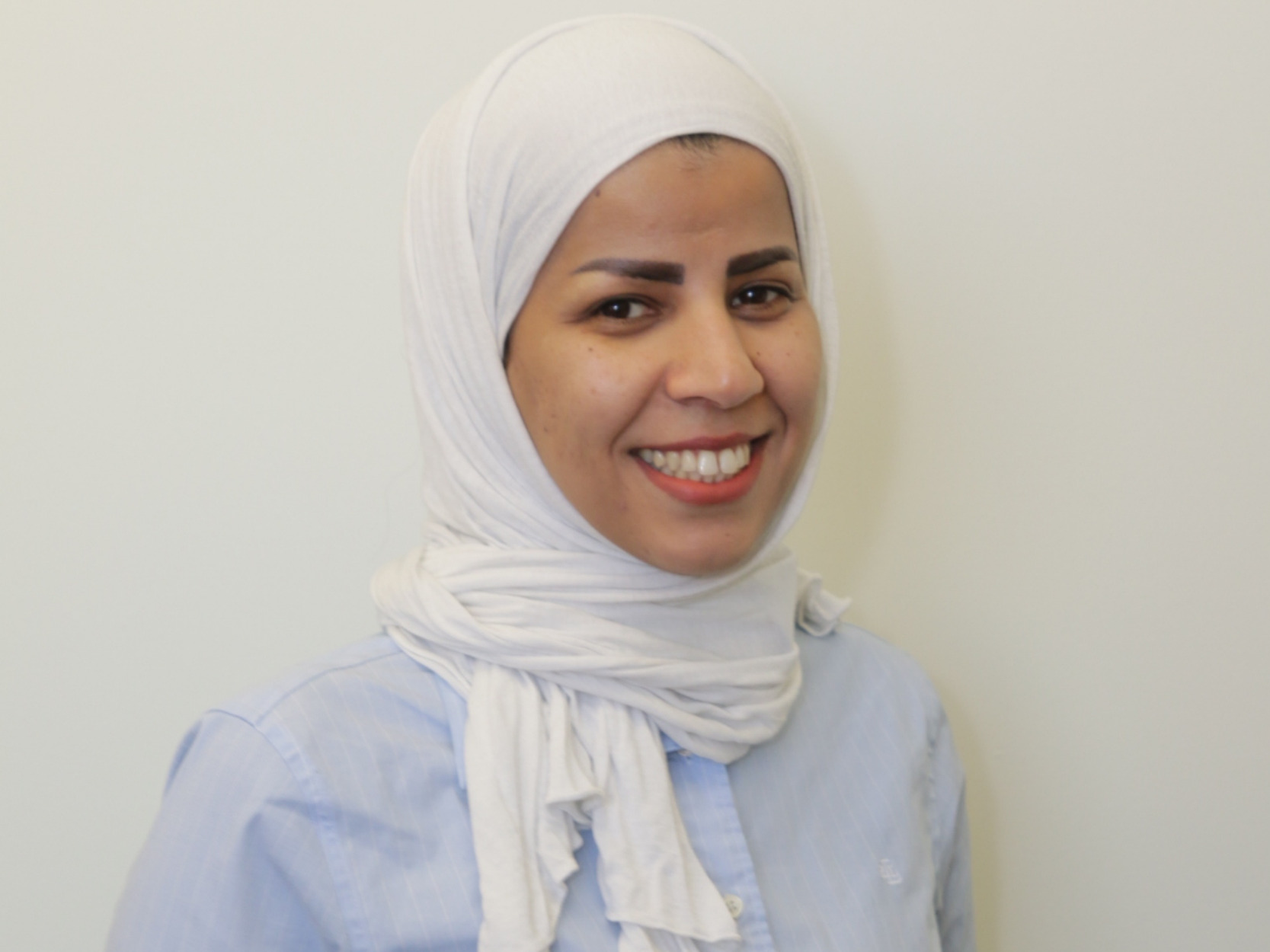 In a new series, the UAB Comprehensive Diabetes Center (UCDC), a leader in the field of diabetes research, will highlight its dynamic faculty and trainees.
In a new series, the UAB Comprehensive Diabetes Center (UCDC), a leader in the field of diabetes research, will highlight its dynamic faculty and trainees.
Endocrinology journal selects Shalev Lab research as feature article of the week
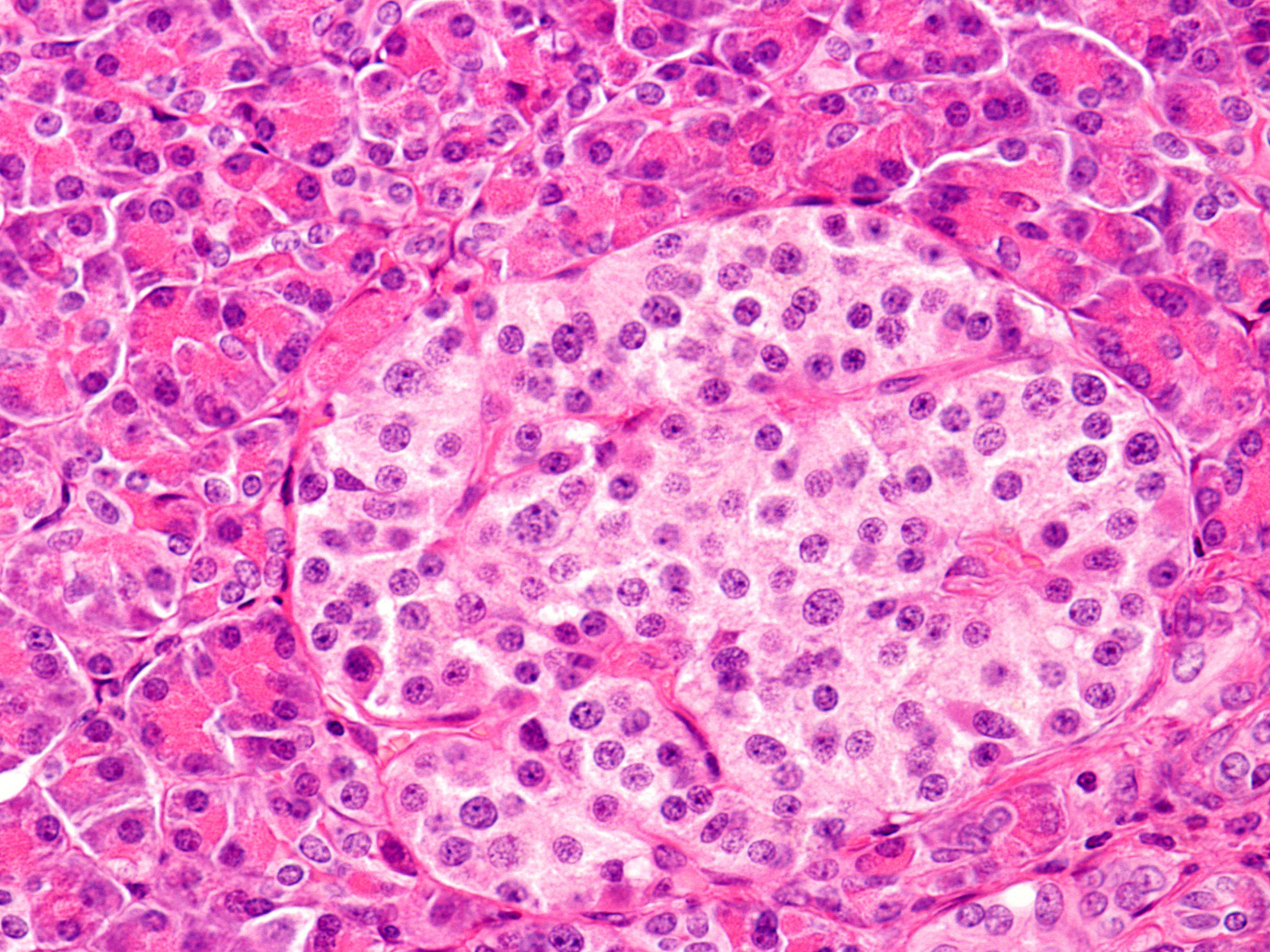 Endocrinology journal selected a recent paper from the research lab of UAB Comprehensive Diabetes Center Director Anath Shalev, M.D., as the feature article of the week. As the feature article, the team’s research will stay at the top of the journal home page for the week.
Endocrinology journal selected a recent paper from the research lab of UAB Comprehensive Diabetes Center Director Anath Shalev, M.D., as the feature article of the week. As the feature article, the team’s research will stay at the top of the journal home page for the week.
Their featured research discovered that deletion of alpha cell TXNIP improves diabetes-associated hyperglucagonemia and glucose homeostasis. The team used alpha cell TXNIP knockout (aTKO) mice and different mouse models of diabetes and glucose intolerance.
Shalev and her lab have found themselves at the forefront of TXNIP research for over two decades. In particular, their lab has been able to demonstrate that the protein TXNIP plays a central role in the disfunction of islet beta cells, which are key to maintaining glucose control due to their production the hormone insulin.
Now, they have found that the role of TXNIP extends beyond the beta cell and also affects other islet cells.
Before it became the Endocrinology feature article, their research “Alpha Cell Thioredoxin-interacting Protein Deletion Improves Diabetes-associated Hyperglycemia and Hyperglucagonemia” was featured in UAB News in September.
Endocrinology is the flagship basic science journal of the Endocrine Society. Journal editors publish research investigating endocrine function at all levels of biological organization.
All study authors include:
Shalev discusses new frontiers in diabetes research with UAB MedCast podcast
 UAB Comprehensive Diabetes Center Director Anath Shalev, M.D., recently sat down with UAB MedCast podcast to talk about new frontiers in diabetes research.
UAB Comprehensive Diabetes Center Director Anath Shalev, M.D., recently sat down with UAB MedCast podcast to talk about new frontiers in diabetes research.
Blum, Toren lead successful dissertation defenses
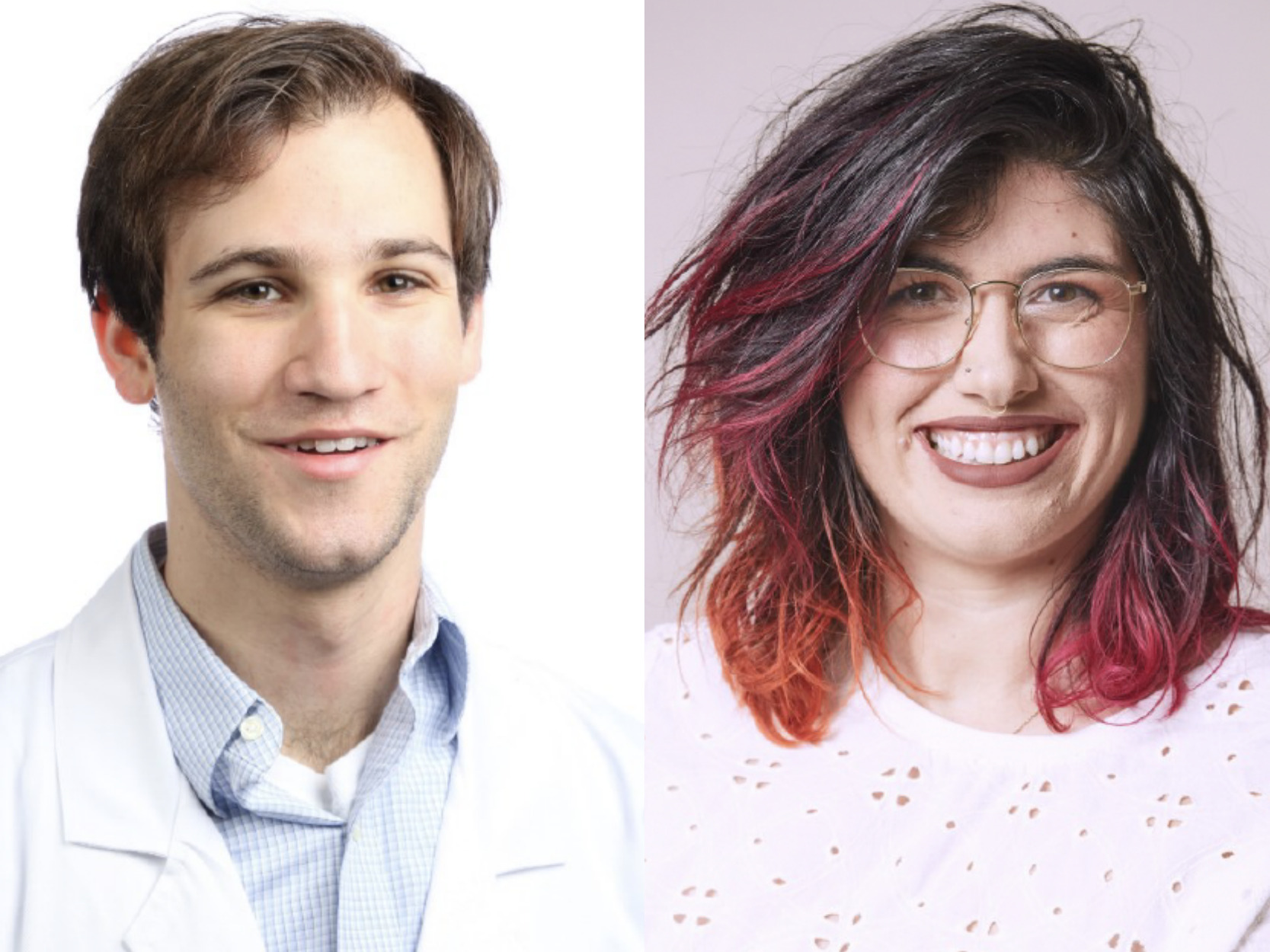 One of the UAB Comprehensive Diabetes Center's mission pillars is the training of the next generation of diabetes professionals. In our long-term pursuit of improving the lives of those affected by diabetes, we train undergraduate, graduate students, and postdoctoral scholars as well as clinical fellows in diabetes research and management.
Read more
One of the UAB Comprehensive Diabetes Center's mission pillars is the training of the next generation of diabetes professionals. In our long-term pursuit of improving the lives of those affected by diabetes, we train undergraduate, graduate students, and postdoctoral scholars as well as clinical fellows in diabetes research and management.
Read more
Get to know the UCDC researchers: Sasanka Ramanadham
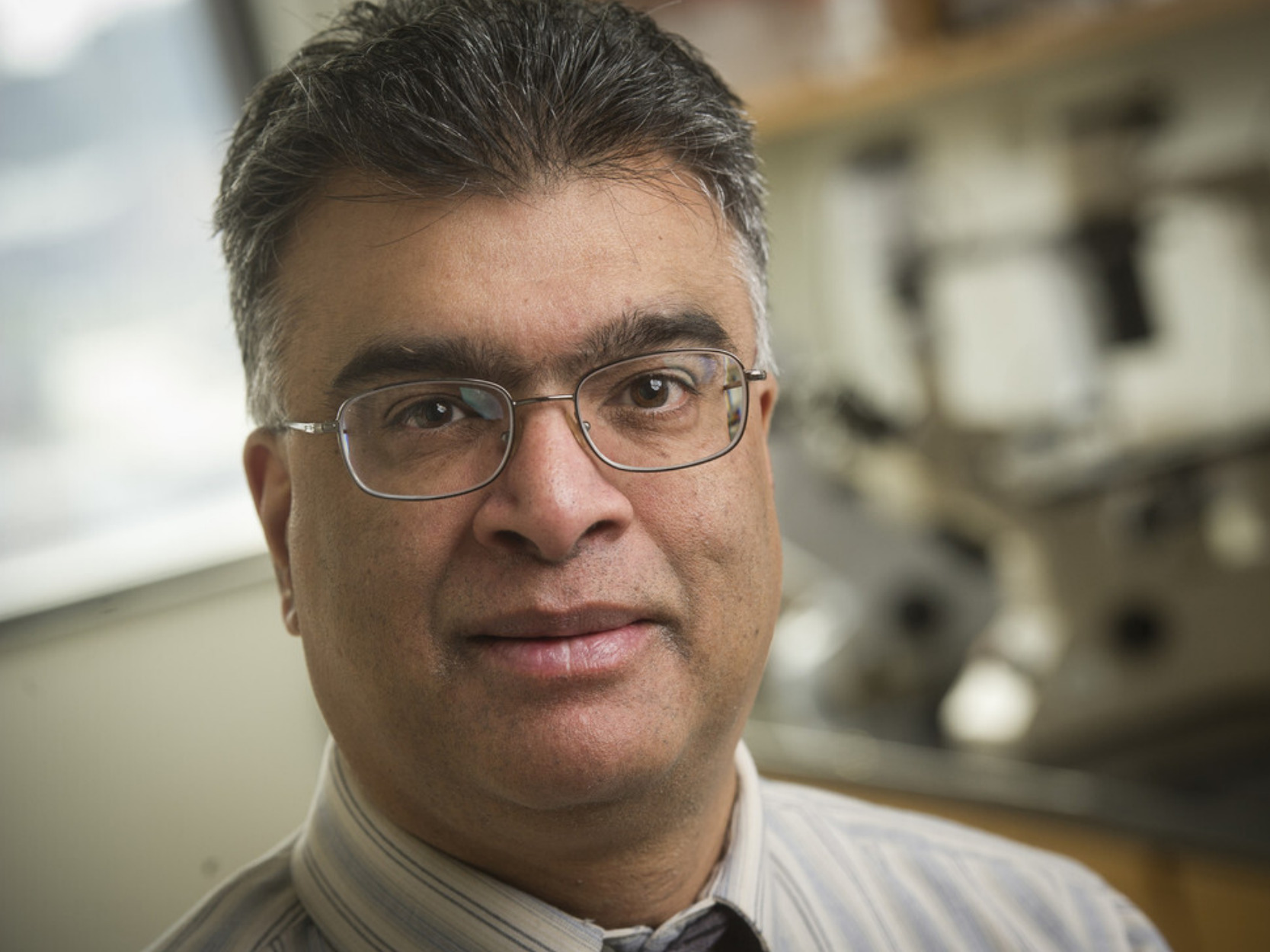
In a new series, the UAB Comprehensive Diabetes Center (UCDC), a leader in the field of diabetes research, will highlight its dynamic faculty and trainees.
Read moreWhy legacy giving made sense for the Bush family

The year was 1968, and Donnie Bush found himself in a rural doctor’s office facing a Type 1 diabetes diagnosis. This was still a daunting diagnosis at the time: while treatment options were improving, disposable syringes were not yet widely available.
Read moreWhite secures travel award for Bioactive Lipids Conference
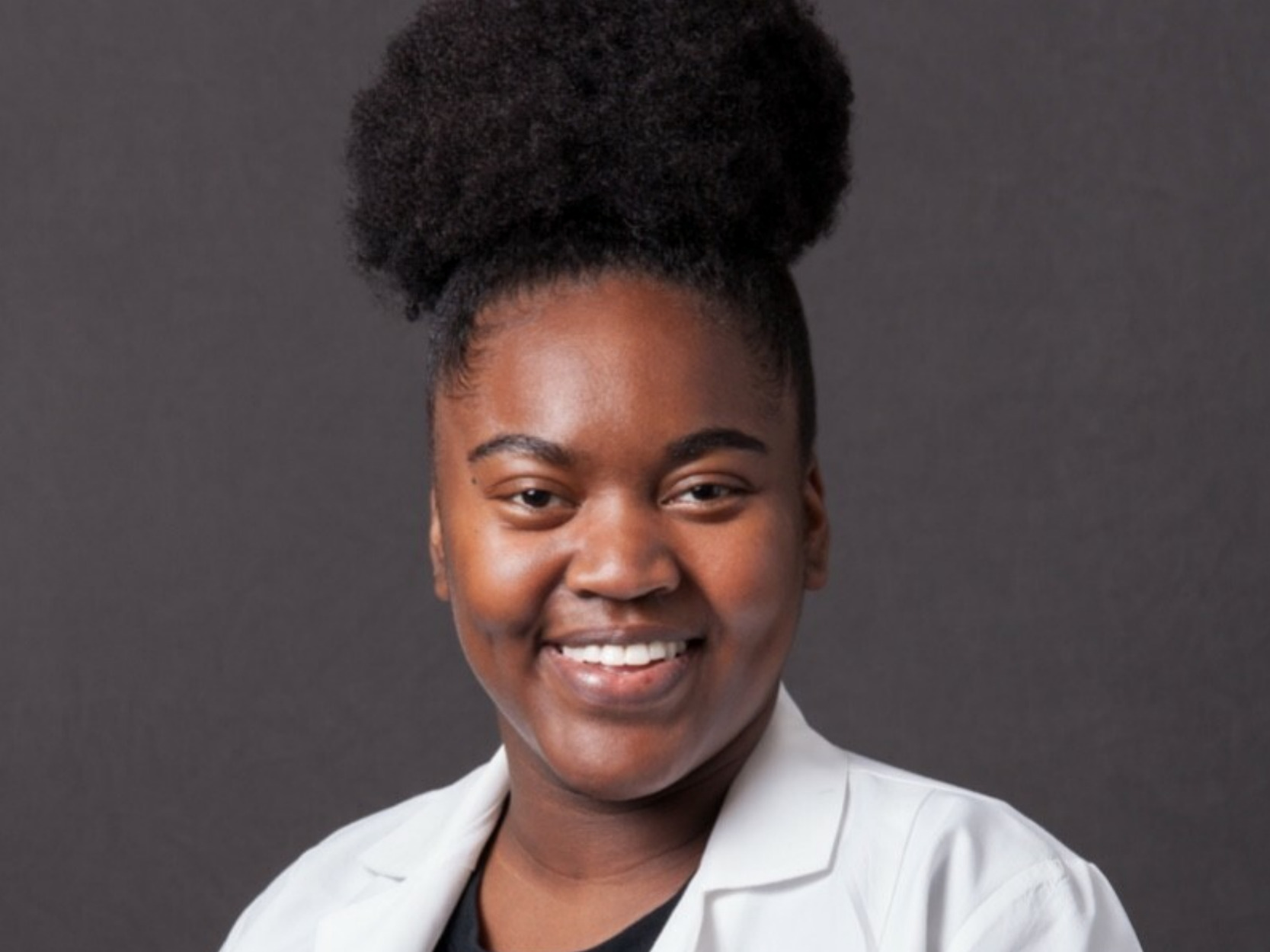 UAB Comprehensive Diabetes Center Graduate Research Assistant and Ph.D. Candidate Tayleur White was awarded a travel award for the 17th Annual Bioactive Lipids in Cancer, Inflammation, and Related Diseases International Conference.
UAB Comprehensive Diabetes Center Graduate Research Assistant and Ph.D. Candidate Tayleur White was awarded a travel award for the 17th Annual Bioactive Lipids in Cancer, Inflammation, and Related Diseases International Conference.
Hunter Lab takes step forward in understanding embryonic pancreatic islet cell development
 Beta-cell regeneration– an area of research that may feel more science fiction than science today. But, it is a keen area of interest for UAB Comprehensive Diabetes Center (UCDC) researchers using cell biology approaches to discover curative treatments for Type 1 and Type 2 diabetes mellitus (T1D, T2D).
Beta-cell regeneration– an area of research that may feel more science fiction than science today. But, it is a keen area of interest for UAB Comprehensive Diabetes Center (UCDC) researchers using cell biology approaches to discover curative treatments for Type 1 and Type 2 diabetes mellitus (T1D, T2D).
Those with diabetes mellitus struggle with chronic high glucose levels, which in T1D, can be attributed to their immune system destroying pancreatic beta-cells. In T2D, these detriments are due to insulin resistance and beta-cell dysfunction. In healthy individuals, beta-cells decrease blood glucose levels through the production and regulation of the hormone, insulin.
There are several approaches to develop novel treatments for diabetes that range from preventive interventions to genetic research approaches, and more. Some researchers attempt to find ways to stop the autoimmune destruction of beta-cells from happening, while others may focus on tempering the alpha-cell, a related islet cell that produces glucagon– a hormone that raises glucose levels.
Division of Endocrinology, Diabetes, and Metabolism Associate Professor and Scientist in the UAB Comprehensive Diabetes Center Chad Hunter, Ph.D., and his lab’s efforts may help inform another strategy to combat diabetes: generation of beta-cells to replace the destroyed or dysfunctional ones.
In their newest publication “The Ldb1 transcriptional co-regulator is required for establishment and maintenance of the pancreatic endocrine lineage,” in the Journal of the Federation of American Societies for Experimental Biology, the authors note the importance of this research: “With the ongoing interest in generating beta and islet-like cells for replacement in diabetic patients, understanding the regulation of embryonic islet cell development remains exceedingly important.”
Authors detail their findings of the role of a protein–Ldb1–as an islet-wide gene regulator of identity and function in the pancreas. Through animal modeling, researchers demonstrated that Ldb1 is necessary for pancreatic islet cell differentiation.
This means that as a cell is generated, this factor helps determine whether a stem cell will become an alpha-cell, beta-cell, or other pancreatic cell type. As a consequence, newborn mice lacking the Ldb1 factor were deficient in beta-cells and therefore insulin, resulting in severe blood glucose impairments.
The significance of the Hunter Lab’s findings is noted in their discussion, “Ldb1 requirement for the emergence of islet cell types during multiple stages of pancreatic development makes it a uniquely valuable tool for our understanding and treatment of diabetes.” These UCDC-investigator-led studies provide new insights into how beta- and islet cells are made.
All study authors, in addition to Hunter, include:
- Eliana Toren, first author, PhD candidate
- Yanping Liu, Ph.D., research scientist
- Maigen Bethea, former Ph.D. student, postdoc fellow at University of Colorado
- Alexa Wade, former UAB undergraduate researcher, Ph.D. candidate at Johns Hopkins
Support came from National Institutes of Health grants DK111483, DK111181 and GM008111; and American Diabetes Association grants 1-16-JDF-044 and 1-17-MUI-004.
The UCDC is a University-Wide Interdisciplinary Research Center comprised of over 200 faculty members from 10 different schools and many departments. It also serves as the umbrella for various research programs and awards; including the prestigious P30 Diabetes Research Center (DRC), U01 Human Islet Research Network (HIRN) grants from the National Institute of Health (NIH) and several research core facilities.
Garvey and team find type 2 diabetes, socioeconomic and social vulnerability disparities predict COVID-19 outcomes
 Department of Nutrition Sciences Professor, Tim Garvey, M.D., and team set out to investigate the effects of both cardiometabolic disease (CMD)–such as obesity and type 2 diabetes–and social determinants of health (SDoH)–like educational attainment, social vulnerability index, rurality, and healthcare access– on COVID-19 outcomes.
Department of Nutrition Sciences Professor, Tim Garvey, M.D., and team set out to investigate the effects of both cardiometabolic disease (CMD)–such as obesity and type 2 diabetes–and social determinants of health (SDoH)–like educational attainment, social vulnerability index, rurality, and healthcare access– on COVID-19 outcomes.